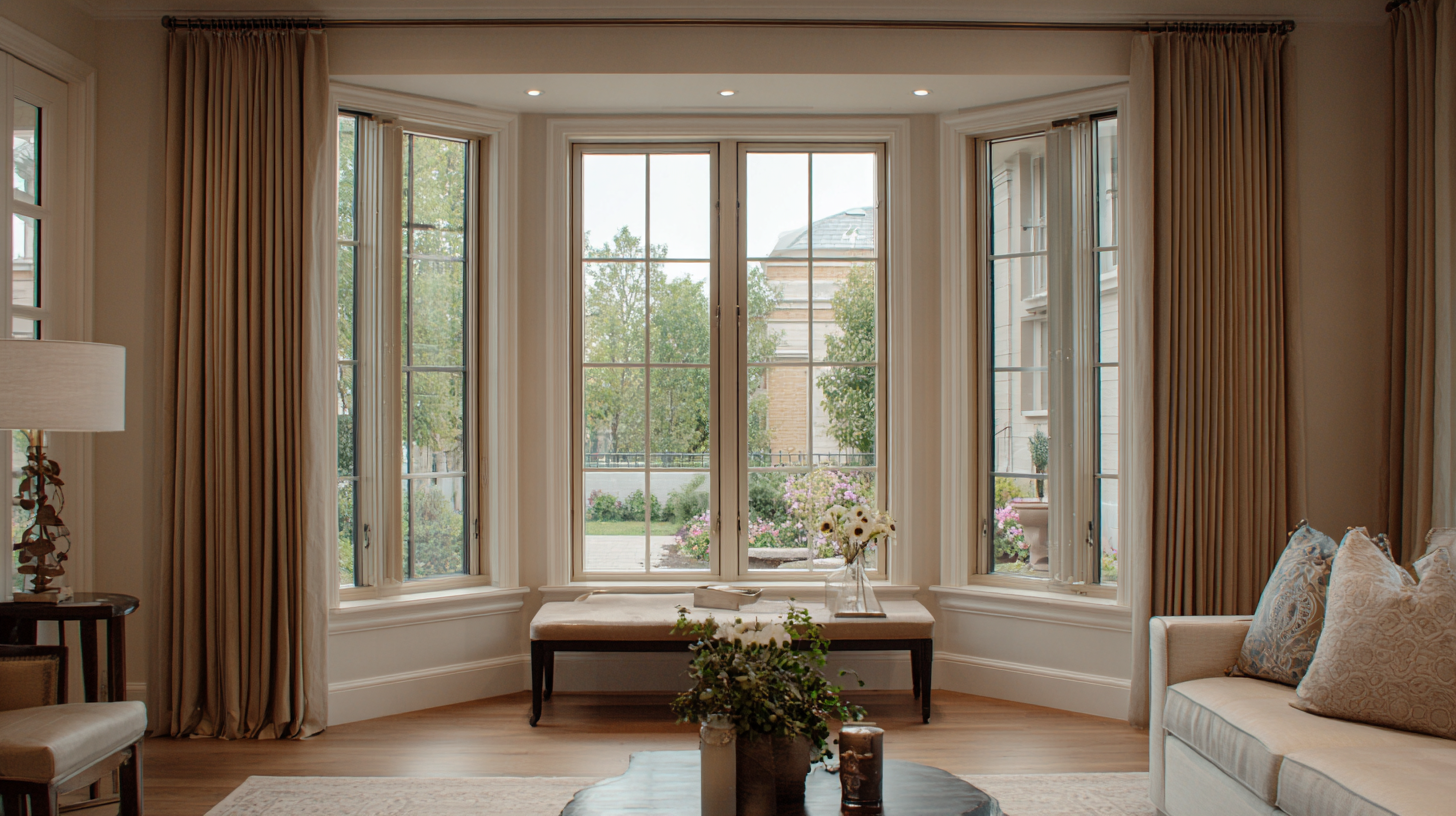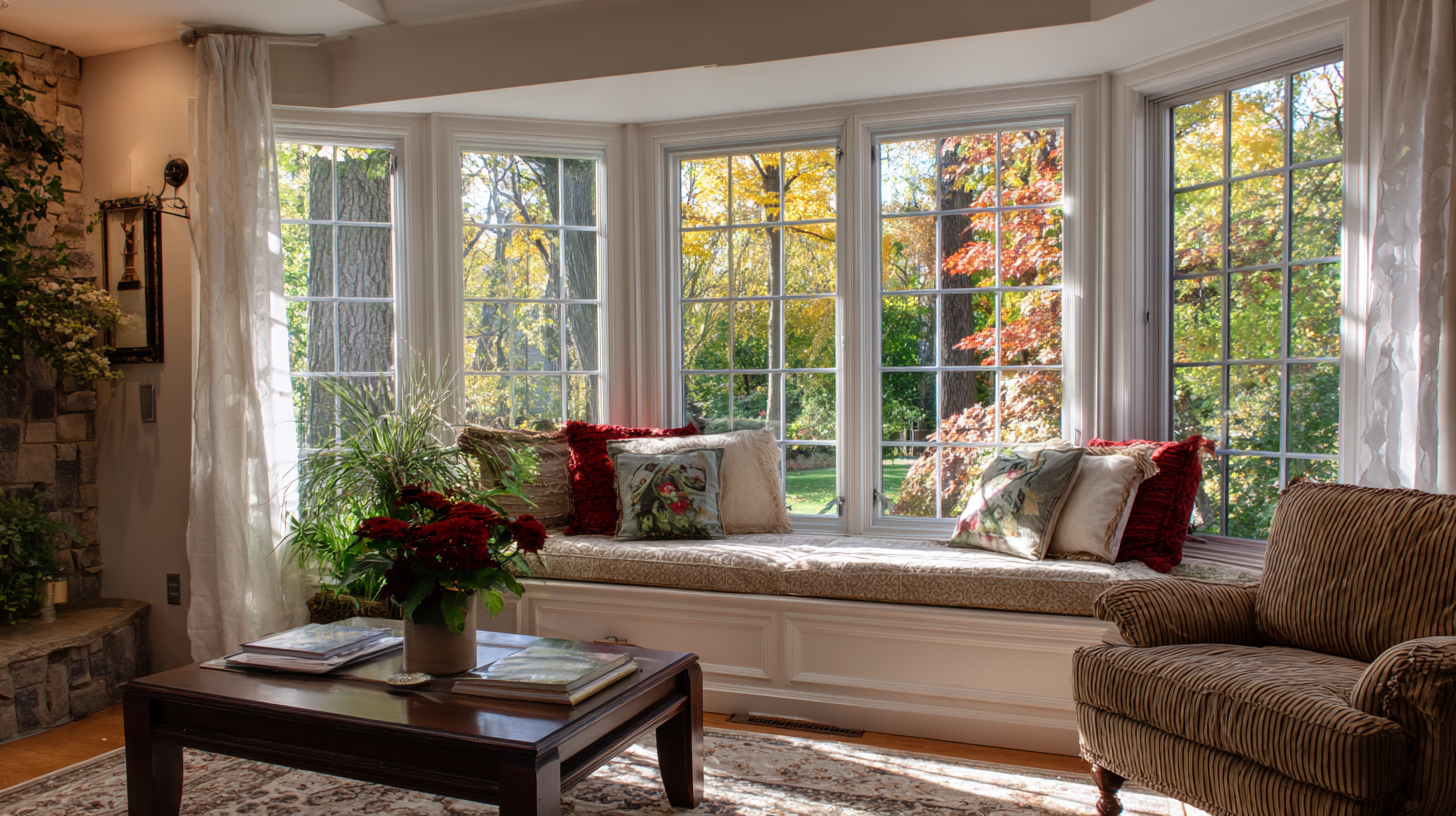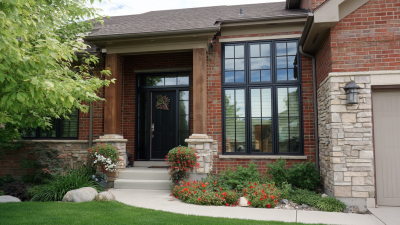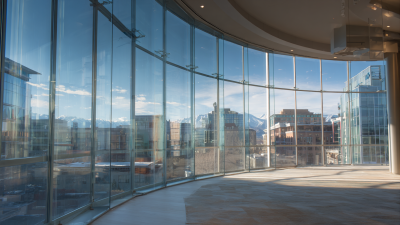Unlocking Comfort: The Advantages of Choosing Quality Home Windows
In the realm of home improvement, selecting quality home windows is a pivotal decision that can significantly influence both comfort and energy efficiency. According to the U.S. Department of Energy, about 25% to 30% of residential heating and cooling energy is lost through inefficient windows, underscoring the critical role they play in maintaining a comfortable home environment. Furthermore, a study by the National Association of Home Builders reveals that homes with high-performance windows can see energy savings of up to 40% annually, leading not only to reduced utility bills but also to a decreased carbon footprint. As homeowners increasingly seek to balance aesthetics, functionality, and sustainability, understanding the advantages of investing in quality home windows becomes essential. This blog will explore top strategies for selecting the right windows, ensuring your home remains a sanctuary of comfort and efficiency.

Understanding the Importance of Quality Home Windows for Comfort
When it comes to ensuring comfort in our homes, the quality of windows plays a crucial role. Quality home windows not only enhance the aesthetic appeal of a property but also significantly contribute to maintaining an ideal indoor temperature. Recent studies emphasize the importance of certain indoor conditions, such as temperature, in promoting better sleep quality. Drafty or poorly insulated windows can lead to temperature fluctuations, which may disrupt sleep and overall comfort.
Moreover, investing in superior window options can improve energy efficiency, helping to regulate internal environments more effectively. With better insulation and ventilation features, these windows can reduce energy consumption while maintaining optimal indoor air quality. As people increasingly seek to create healthy living spaces, it’s evident that choosing high-quality windows is an integral part of designing an environment that promotes comfort, well-being, and even productivity. Upgrading to advanced window solutions ensures that homeowners can enjoy a serene and comfortable atmosphere all year round.

Key Benefits of Energy-Efficient Windows: Saving Costs and Resources
Energy-efficient windows are a crucial investment for any homeowner seeking to optimize comfort while minimizing environmental impact. One of the primary benefits of these windows is their ability to significantly reduce energy costs. By effectively insulating your home, energy-efficient windows help maintain a stable indoor temperature, reducing the need for heating and cooling systems to work overtime. This not only translates to lower utility bills but also contributes to less wear on HVAC equipment, prolonging its lifespan.
In addition to saving money, energy-efficient windows play a vital role in conserving resources. By utilizing advanced materials and technologies, such as low-emissivity (Low-E) glass and triple glazing, these windows enhance thermal performance. This means that less energy is consumed for heating and cooling, which not only eases the strain on power plants but also diminishes greenhouse gas emissions. Embracing energy-efficient windows is not just about comfort and savings; it's a proactive step toward a sustainable future for our planet.
Choosing the Right Materials: Window Frames That Enhance Durability
When it comes to selecting quality home windows, the choice of materials for window frames plays a crucial role in ensuring durability and performance. According to the U.S. Department of Energy, windows account for about 25-30% of residential heating and cooling energy use. Opting for high-quality materials such as vinyl, fiberglass, or aluminum can significantly enhance the energy efficiency of a home. For instance, vinyl frames are not only affordable but also resist fading, warping, and cracking, offering an average lifespan of 20-40 years, according to the American Window and Door Institute.
Moreover, the National Association of Home Builders highlights that well-constructed window frames can improve a home’s resilience against extreme weather conditions. Fiberglass frames, known for their strength and thermal performance, provide up to 70% lower thermal expansion than aluminum, leading to less stress on joints and a more durable product overall. By investing in windows with durable frames, homeowners not only enjoy long-term savings on energy bills but also enhance the structural integrity of their homes, providing peace of mind for years to come.
Design Features to Consider for Maximum Natural Light and Ventilation
When it comes to selecting the perfect home windows, it’s crucial to consider design features that maximize natural light and ventilation. Large casement windows, for instance, not only provide expansive views but can also be opened wide to allow fresh air into your living space. Positioning these windows strategically in rooms that receive direct sunlight can create a bright and inviting atmosphere throughout the day.

Tip: Integrate window placement with your home's architecture. For instance, placing windows on the south side of your home will capture sunlight during winter, helping to warm your space naturally.
Additionally, choosing multipurpose windows, such as sliding or bi-fold designs, can enhance ventilation significantly. These styles can be easily adjusted to let in just the right amount of breeze, making your home feel airy and comfortable. Consider including operable top hoppers or transom windows above stationary units to improve airflow without sacrificing your view.
Tip: Ensure that your windows have proper screening options, allowing you to enjoy fresh air without the nuisance of bugs. This combination of functionality and style will not only enhance your home’s aesthetic but also improve its comfort level.
Maintenance Tips for Prolonging the Life of Your Home Windows
Maintaining your home windows is essential for ensuring their longevity and efficiency. According to the Efficient Windows Collaborative, well-maintained windows can last upwards of 30 years, but neglecting care can significantly reduce their lifespan. Regular maintenance not only enhances appearance but also improves energy efficiency, which can lead to savings of up to 30% on heating and cooling costs, as reported by the U.S. Department of Energy.
Tip 1: Routine inspections are crucial. Check for cracks or gaps in the window seals at least once a year. Caulking and weatherstripping should be replaced every few years to maintain airtight seals. This minimizes air leaks and boosts your home's energy efficiency.
Tip 2: Clean your windows regularly using a soft cloth and a gentle cleaner. Avoid harsh chemicals that can damage the window materials. Industry reports suggest that simple cleaning can enhance the window's performance and aesthetics, while prolonged neglect can lead to permanent damage.
Tip 3: If you notice condensation between double or triple-pane windows, it may indicate a seal failure that requires professional assessment. Addressing these issues promptly can save you from costly replacements down the line while ensuring your windows remain functional and attractive.
Related Posts
-

Exploring the Unique Features of Best Home Windows and How to Choose the Right Type for Your Needs
-

How to Choose the Best Exterior Windows for Energy Efficiency and Aesthetics
-

Navigating Global Import Export Certifications for the Best Commercial Windows Buying Guide
-

Exploring the Future: 2025 Trends in Fixed Windows Technology and Innovative Alternatives
